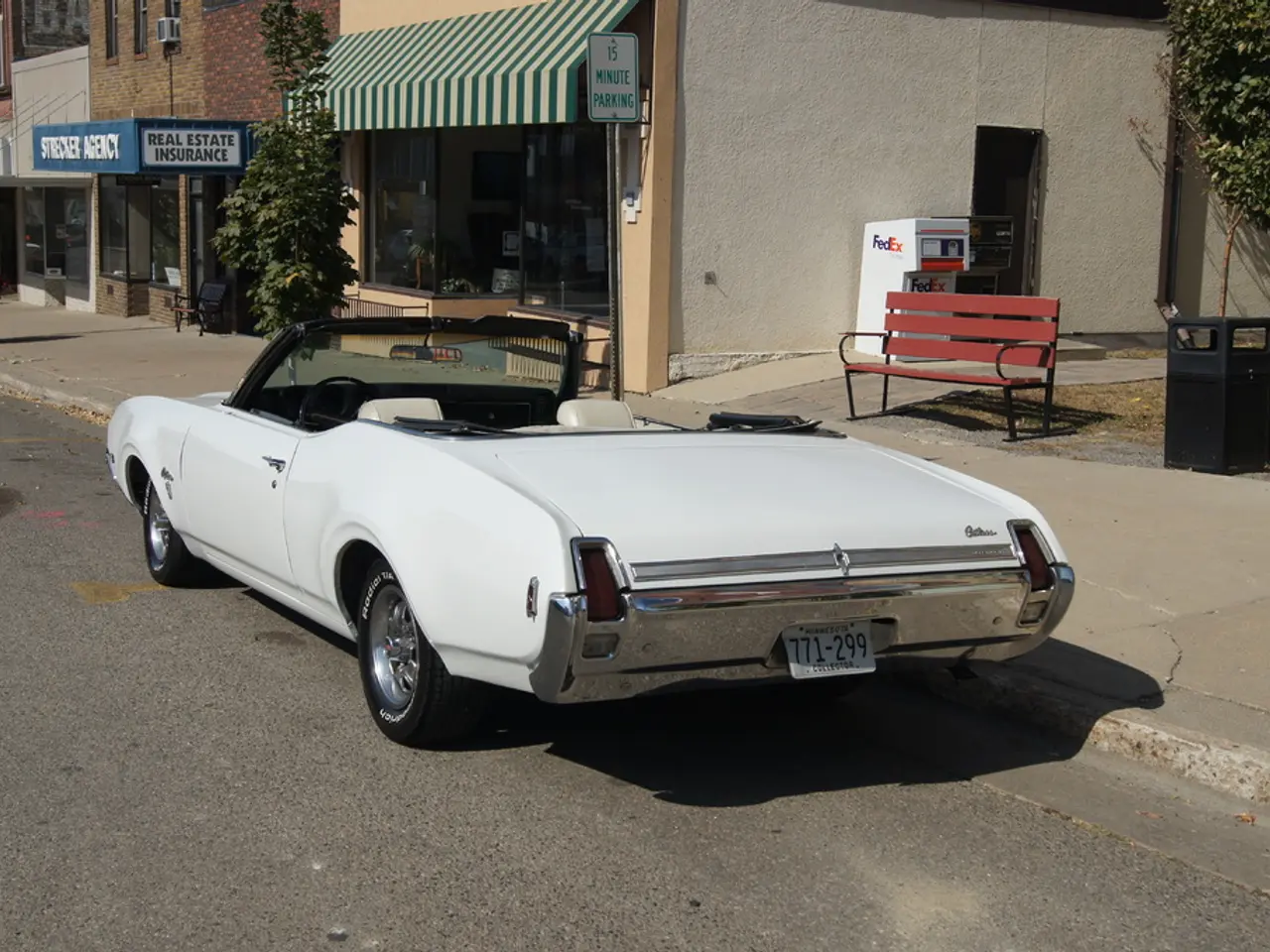Essential consumer safeguards are being eliminated from certain automobile insurance plans.
When insurers and repair shops can't see eye to eye, it's often the driver who gets the short end of the stick. And as a long-standing consumer protection quietly disappears from some auto policies, this problem could escalate.
The right to appraisal, or RTA, has been a staple in car insurance policies for a while. It's a clause that allows policyholders to request a third-party appraisal if their repair shop and insurance company can't agree on the repair costs after an accident.
Nowadays, though, repair professionals claim some insurers are dropping the RTA clause from their policies, and are even pushing back on legislation that mandates its inclusion. In May 2025, two states – Texas and Washington – passed bills to halt this trend. The laws require insurers serving these states to include the RTA clause in all auto insurance policies. More states may follow suit.
How the right to appraisal works
If your policy includes comprehensive and collision coverage (coverage for physical damage to your vehicle), it likely includes the appraisal clause or RTA. If your insurance company and repair shop disagree on the repair costs, you can use this clause to request a third-party appraisal to settle the dispute.
The right to appraisal plays a crucial role in the repair process. With vehicle repair costs on the rise and insurers' repair estimates often falling short of shop estimates, disputes are inevitable. "Disagreements are bound to happen," says Andrew Batenhorst, a California body shop manager who's dealt with numerous RTA claims. "But there should be mechanisms in the policy that allow for an independent party to mediate these situations."
Consumers typically invoke the RTA to avoid covering out-of-pocket expenses for repairs that the insurance company won't cover. "More often than not," says Batenhorst, "when I've successfully used the RTA, the insurance company is then forced to pay fairly for the repairs."
But the insurance industry isn't always thrilled about the RTA.
Where to find the RTA in your car insurance policy
Wondering if your policy includes the RTA? Check the contract you signed with your insurer. The RTA clause usually appears under the physical damage section of your policy.
For an example, let's look at a Progressive policy in New York. The RTA clause is found under "Part IV – Damage to a vehicle," the section dealing with physical damage coverage. "If we can't agree with you on the amount of a loss," it reads, "then either we or you may demand an appraisal of the loss."
Rhode Island
The RTA clause then details:
- Each party must appoint an appraiser within 30 days of the call for appraisal.
- If appraisers don't agree, they'll select a "qualified umpire" to make the final call.
- If appraisers can't agree on an umpire within 15 days, the case may go to court.
- Each party pays their appraiser's fees, while other fees are split equally.
$2,441
If your policy contains the RTA, it may look similar or different. For instance, in many State Farm policies, the RTA is only an option in the case of a total loss.
Why insurers don't like the RTA
$2,679
The RTA grants consumers a crucial tool for resolving disputes during a car insurance claim. However, Batenhorst says that insurers are growing more critical of the appraisal process. "Most people don't know," he says, "but most big companies are actively working to remove this clause from their policies."
While this may sound worrying, it's worth noting that it's rare for the insurance company to call for a third opinion on repair costs. So, consumers may have more to lose than insurance companies when the RTA is removed.
$2,946
But there are other factors behind insurers' ambivalence towards the RTA. Brandon Vick, regional VP for the Pacific Northwest at the National Association of Mutual Insurance Companies (NAMIC), explains that while RTA clauses are still standard for most insurers, there's a concern that costly appraisals could raise operating costs – and, in turn, the cost of coverage.
Take Washington, where Senate Bill 5721 passed. Most insurers in the state already had RTA clauses before the bill, according to Vick. However, for those that didn't, the bill's new requirement to add RTA clauses could result in a "possible increase in rates."
20%
Vick isn't the only one raising these concerns. Representatives of the Northwest Insurance Council and American Property Casualty Insurance Association (APCIA) testified before the Washington State Senate in opposition to SB 5721, arguing that requiring RTA clauses in every auto policy would encourage more drivers to invoke the RTA, thus potentially slowing down the repair process and raising costs over time.
Does the RTA increase car insurance premiums?
Insurance lobbyists assert that enshrining the RTA in state laws will raise car insurance premiums – but how credible is this threat?
Let's examine Rhode Island, one of the few states with an existing RTA law. Senate Bill 925 of 2023 revised the state's Unfair Claims Practices Act and established the RTA for all auto insurance policyholders in Rhode Island.
United States
In the two years since SB 925 took effect, car insurance premiums have increased. However, this increase reflects more than the change in the Unfair Claims Practices Act. Market forces like an increase in vehicle theft, rising healthcare costs, and a nationwide auto technician shortage have contributed to a 20 percent increase in the cost of car insurance in Rhode Island over the last two years.
But in the time that Rhode Island's average auto insurance premiums increased by 20 percent, the average cost of insurance nationwide increased by 31 percent. In other words, Rhode Island drivers actually saw their car insurance premiums rise at a slower rate than the nation as a whole following the passage of the 2023 RTA law.
$2,013
How recent RTA bills won industry support
While insurance organizations have voiced opposition to the passage of RTA laws like Washington's SB 5721 and Texas's SB 458, both bills underwent significant modifications that made them more palatable to insurers.
$2,349
"The key change we were able to secure in Washington's SB 5721," says Vick, "was the removal of the 'insurer pays' provision." In the original bill introduced in February, if the appraiser's final determination of the amount of loss was $500 greater than the insurer's estimate, the entire cost of the appraisal, including appraisers' and attorneys' fees, would fall to the insurer.
The situation in Texas was similar. A previous version of SB 458, proposed but not passed in 2023, stated that if the cost of repairs was found to be higher than the insurance company's initial estimate by even $1, the insurer would be required to pay for the policyholder's appraisal as well as their own. The version set to take effect this September includes no such provision.
$2,638
Understanding the terms of your policy can help you make an informed decision when filing a claim or deciding whether to initiate the appraisal process on an existing claim.
States with RTA Laws
31%
Only a few U.S. states currently have RTA laws requiring insurers to include this clause in their policies or as part of statutory law. Besides Rhode Island, laws in Alaska and Massachusetts require insurers to include the RTA clause in all personal auto insurance policies. Virginia has no statutory requirement for insurers but does include this clause in the standard auto policy. And insurers who limit appraisal only to total losses may be in violation of the Virginia Bureau of Insurance's regulations. Other states may follow Texas and Washington in enacting RTA laws.
Protecting Your RTA
- Review your policy: Don't wait until you're in the middle of a claim to read your auto policy's fine print. Understanding your policy's provisions can help streamline the claims process and ensure you have adequate coverage.
- Consider shopping around: If you're unhappy with your current auto policy, you might want to shop around for a different insurer. Compare quotes and research how different companies handle claims by reviewing user reviews and third-party ratings like the J.D. Power U.S. Auto Claims Satisfaction Study or the CRASH Network Insurer Report Card.
- Weigh the costs and benefits of an appraisal: If your policy includes the RTA, understand the associated costs and weigh them against the potential benefits.
- Stay informed about auto repair legislation: As collision repair advocates push for stronger RTA laws, more states may enact similar measures. Keep an eye on developments in your state.
The RTA clause, found in some car insurance policies, allows for a third-party appraisal to settle disputes between the insurance company and the repair shop over repair costs after an accident. In 2025, Texas and Washington passed bills mandating the inclusion of the RTA clause in all auto insurance policies served in these states. However, some insurers are reportedly trying to drop the RTA clause from their policies or resist its inclusion in legislation. Consumers can benefit from using the RTA to avoid paying out-of-pocket expenses for repairs that the insurance company won't cover.




